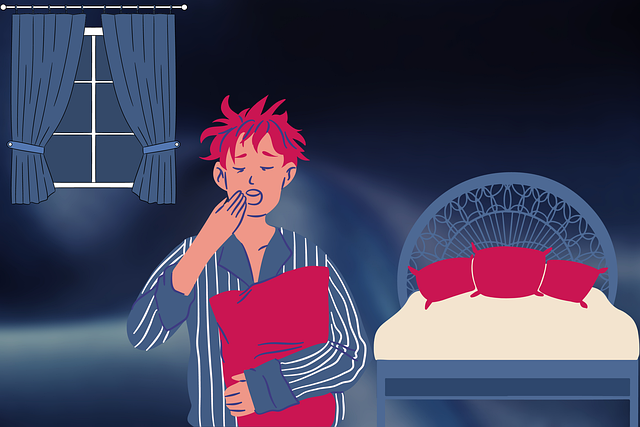Insomnia Treatments That Work
If you’re one of the many men and women who suffer from insomnia, you know how aggravating it can be to lay in bed for hours, tossing and turning, attempting to fall asleep. However, the more you attempt, the less probable it seems that you will fall asleep. Many individuals have insomnia at some time in their life, and there is a range of treatments that might assist them in getting the rest they need. There are several pharmacological and natural therapies for insomnia. While everyone’s experience with insomnia is unique, there are several therapies that work for the majority of individuals. Here are a few examples:
Over-the-counter insomnia treatments
Over-the-counter insomnia medications are likely to be one of the first things you try if you are having difficulty sleeping. These should only be used to treat insomnia in the short term. When selecting an over-the-counter insomnia remedy, it is recommended to get the counsel of a pharmacist to determine which one is best for you. Remember to mention any other medications you are taking since the efficacy of other medications may be influenced by the sleep medicine (1).
Diphenhydramine is a commonly used over-the-counter drug for treating insomnia. Nytol is the brand name for the sleep aid. This medicine works by targeting the brain areas important for regulating sleep, inducing relaxation, and assisting patients in falling and staying asleep (2). Diphenhydramine has been demonstrated to be safer than prescription sleep aids for many individuals. However, before taking diphenhydramine, you should contact a doctor, particularly if you have any pre-existing medical issues or a history of drug abuse. Furthermore, it is critical to carefully follow the dose directions since taking too much of this drug may induce nausea, diarrhea, and even visual problems (3). Overall, diphenhydramine may be an effective therapy choice for persons suffering from insomnia, but it must be used with caution and attention.
Doxylamine is an over-the-counter insomnia medication. It is a sedating antihistamine that acts by inhibiting the function of histamine, a neurotransmitter that regulates wakefulness (4). Doxylamine is usually given half an hour before going to bed. Doxylamine users may encounter adverse effects such as dry mouth, sleepiness, and headaches. When used as intended, doxylamine is usually regarded as safe. People with specific medical issues, such as asthma, glaucoma, or bladder difficulties, should not take it. Before using doxylamine, check with your doctor to ensure that it is safe for you (5).

Melatonin
Another alternative is to take melatonin, a hormone generated naturally by the body that aids in the regulation of sleep cycles. Melatonin levels in insomniacs might be affected by poor sleep hygiene, lifestyle, or bedroom environment. Melatonin pills are widely accessible and may be an effective strategy to enhance sleep quality. Melatonin has been found in studies to help individuals fall asleep faster and enhance sleep efficiency, which means that those who take it spend more time sleeping. Melatonin may also benefit persons who suffer from jet lag or work night shifts.
It is critical to take melatonin at the proper time while treating insomnia. Melatonin is most effective when taken one to two hours before sleep. This allows the body to absorb the supplement and begin to feel tired. However, since everyone is unique, it may take some trial and error to determine the optimal time for you.
Melatonin is generally safe for most individuals to use, while there are potential negative effects. These include daytime drowsiness, nausea, and dizziness. More significant adverse effects, including disorientation, fainting, and depression, may occur in some persons. For these reasons, it is important to consult with a physician before using a melatonin supplement, particularly if you have a pre-existing medical condition. Melatonin should not be used by those with auto-immune illnesses; therefore, they must seek alternate therapies or adhere to a stringent sleep hygiene program (6).
Prescription sedatives
These drugs, which include zolpidem (Ambien) (7) and benzodiazepines such as alprazolam (Xanax or Valium) (8), have a high success rate in treating insomnia, and many users report extended durations of deep sleep after using them. However, these medicines have a variety of downsides, including grogginess upon awakening and drug dependency (9).
When it comes to treating insomnia, antidepressant medications are often one of the more effective solutions. These drugs act by increasing the amounts of particular neurotransmitters in the brain, such as GABA. This provides a soothing and relaxing impact on the body. These medications may help to enhance sleep quality by boosting these chemical messengers, enabling patients to obtain the rest they need to feel refreshed and alert throughout the day (10). There may be negative effects on attention that influence driving and performance the following day (11). Some individuals may have other adverse effects, such as irritability or sexual problems (12). However, for many people, these side effects are more tolerable than the issues created by chronic sleeplessness. So, if you’re having trouble sleeping, speak with your doctor about if taking a depression medication might help you sleep better and enhance your overall health and well-being.
Having said that, if you are currently on medicine or do not want to risk the negative effects of insomnia treatments, you may want to try non-drug methods. Fortunately, there are a few effective insomnia remedies that you may try.
Cognitive Behaviour Therapy
Because of its efficacy, safety, and low danger of dependency or addiction, this non-pharmaceutical way of treating insomnia is gaining favor. Cognitive Behaviour Therapy (CBT) focuses on employing behaviors and activities to create healthy sleep patterns and improve sleep habits. The purpose of CBT is to modify how a person thinks about and reacts to sleeping problems. A person may get control of their insomnia and attain higher quality sleep by learning how to quiet the mind, relax the body, and fall asleep more quickly (13).
Relaxation exercises, guided imagery, pleasant waking routines, sensory management measures, scheduled awakenings, and healthy lifestyle adjustments are also often utilized for insomnia therapy (14). These therapies, whether used alone or in conjunction with medication, maybe a useful strategy for assisting patients in getting the rest they need.
Acupuncture
While this traditional Chinese treatment is often used to treat pain and other health issues, it also seems to be beneficial in treating sleeplessness. It has even been shown to be more effective than certain sleeping pills (15). Acupuncture is inserting very thin needles into the skin at precise places on the body. According to traditional Chinese medicine, this aids in the unblocking of qi (or life force) and the restoration of physical equilibrium. While acupuncture is often used to alleviate pain, it may also be used to cure insomnia. Acupuncture is supposed to function by promoting the release of neurotransmitters that promote relaxation and reduce tension. GABA and serotonin are two examples (16). If you want to attempt acupuncture as a therapy for insomnia, you should check with a skilled practitioner to verify that the needles are put appropriately.
Acupressure
Acupressure is a centuries-old healing practice that has been utilized to cure a wide range of diseases. If you don’t like the concept of needles, you might try acupressure as an insomnia therapy at home. There are many pressure sites on the body that might aid in relaxation and stress relief (17). Applying pressure to these sites might cause the body to produce endorphins, which can assist induce sleep. Furthermore, acupressure may lower stress, both of which can be beneficial in the treatment of insomnia (18). While there is no one-size-fits-all solution to treating insomnia, acupressure may be a helpful alternative for people seeking a natural and drug-free way to enhance their sleep.
As seen, there are several approaches to treating insomnia, including medicine, proper sleep habits, and alternative remedies. All have been shown to function; it simply depends on which one works best for each individual.
- Over the Counter Sleep Aids https://www.sleepfoundation.org/sleep-aids/over-the-counter-sleep-aids
- Diphenhydramine https://www.nhs.uk/medicines/diphenhydramine/
- Diphenhydramine https://medlineplus.gov/druginfo/meds/a682539.html
- Review of the histamine system and the clinical effects of H1 antagonists: Basis for a new model for understanding the effects of insomnia medications https://www.sciencedirect.com/science/article/abs/pii/S1087079212000962?via%3Dihub
- Doxylamine https://medlineplus.gov/druginfo/meds/a682537.html
- Melatonin for sleep problems https://www.nhs.uk/medicines/melatonin/
- Zolpidem https://www.nhs.uk/medicines/zolpidem/
- Benzodiazepines https://www.dea.gov/sites/default/files/2020-06/Benzodiazepenes-2020_1.pdf
- Prescription sleeping pills: What’s right for you? https://www.mayoclinic.org/diseases-conditions/insomnia/in-depth/sleeping-pills/art-20043959
- Benzodiazepines as antidepressants: does GABA play a role in depression? https://pubmed.ncbi.nlm.nih.gov/8573660/
- Insomnia beyond Benzodiazepines: Pharmacology, Clinical Applications, and Discovery https://pharmrev.aspetjournals.org/content/70/2/197
- Sleeping pills and minor tranquillisers https://www.mind.org.uk/information-support/drugs-and-treatments/sleeping-pills-and-minor-tranquillisers/side-effects-of-benzodiazepines/
- Treatment of Adult Insomnia With Cognitive–Behavioral Therapy https://www.ncbi.nlm.nih.gov/pmc/articles/PMC4294319/
- Behavioral interventions for insomnia: Theory and practice https://www.ncbi.nlm.nih.gov/pmc/articles/PMC3554970/
- Efficacy of Acupuncture for Primary Insomnia: A Randomized Controlled Clinical Trial https://www.hindawi.com/journals/ecam/2013/163850/
- About Stress https://holistic-health.org.uk/acupuncture-oxford/acupuncture-for-stress/
- Pressure points to help you fall asleep https://www.medicalnewstoday.com/articles/327274
- Effectiveness and Characteristics of Acupressure for Elderly with Insomnia: A Systematical Review https://juniperpublishers.com/gjidd/GJIDD.MS.ID.555586.php
The post Treatments for Insomnia That Work appeared first on https://gqcentral.co.uk








Comments are closed